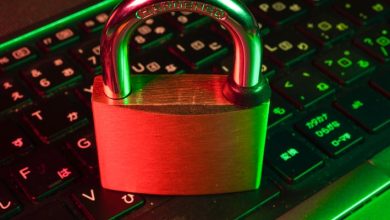The Importance of Regular Security Audits
- The Benefits of Regular Security Audits
- Protecting Your Data with Routine Audits
- Preventing Cyber Attacks Through Regular Audits
- Ensuring Compliance with Security Standards
- Identifying Vulnerabilities with Security Audits
- Enhancing Overall Security with Regular Audits
The Benefits of Regular Security Audits
Regular security audits are essential for any organization to ensure the safety and integrity of their data and systems. These audits help identify vulnerabilities and weaknesses in the security infrastructure, allowing for timely remediation before any potential breaches occur. By conducting regular security audits, companies can stay one step ahead of cyber threats and protect their sensitive information from falling into the wrong hands.
One of the key benefits of regular security audits is the ability to detect and address security gaps before they are exploited by malicious actors. By proactively identifying vulnerabilities in the system, organizations can implement necessary security measures to prevent data breaches and other cyber attacks. This proactive approach to security not only protects the organization’s assets but also helps maintain customer trust and loyalty.
Moreover, regular security audits can also help organizations comply with industry regulations and standards. Many regulatory bodies require companies to conduct regular security assessments to ensure the protection of sensitive data. By staying compliant with these regulations, organizations can avoid hefty fines and legal consequences that may arise from non-compliance.
In addition to enhancing security and compliance, regular security audits can also improve overall operational efficiency. By identifying and fixing security issues, organizations can streamline their processes and reduce the risk of downtime due to cyber incidents. This, in turn, can lead to cost savings and increased productivity for the organization.
Overall, regular security audits are a crucial component of any organization’s cybersecurity strategy. By conducting these audits on a consistent basis, companies can strengthen their security posture, comply with regulations, and improve operational efficiency. Investing in regular security audits is an investment in the long-term success and resilience of the organization in the face of evolving cyber threats.
Protecting Your Data with Routine Audits
Regular security audits are essential for protecting your valuable data from potential threats and breaches. By conducting routine audits, you can identify vulnerabilities in your systems and take necessary measures to address them before they are exploited by malicious actors. This proactive approach to data security can help prevent costly data breaches and safeguard your organization’s reputation.
During a security audit, a team of experts will assess your systems, networks, and processes to identify any weaknesses or gaps in your security measures. They will evaluate your current security protocols and recommend improvements to enhance your overall data protection strategy. By regularly conducting these audits, you can stay one step ahead of cyber threats and ensure that your data remains secure.
In addition to identifying vulnerabilities, security audits also help ensure that your organization is compliant with relevant regulations and industry standards. By staying up to date with the latest security requirements, you can avoid costly fines and penalties for non-compliance. Regular audits demonstrate your commitment to data security and can help build trust with customers, partners, and other stakeholders.
Overall, protecting your data with routine audits is a proactive and effective way to safeguard your organization’s sensitive information. By regularly assessing your security measures and making necessary improvements, you can reduce the risk of data breaches and maintain the integrity of your systems. Don’t wait until it’s too late – schedule a security audit today to protect your data and your business.
Preventing Cyber Attacks Through Regular Audits
Regular security audits are crucial in preventing cyber attacks on your organization. By conducting routine assessments of your systems and networks, you can identify vulnerabilities and weaknesses that could be exploited by malicious actors. These audits help you stay one step ahead of potential threats and ensure that your data remains secure.
During a security audit, experts will assess your organization’s IT infrastructure, policies, and procedures to identify any gaps in security. They will also review access controls, encryption methods, and incident response plans to ensure that your organization is prepared to handle any potential cyber threats. By regularly conducting these audits, you can proactively address any security issues before they escalate into major breaches.
One of the key benefits of regular security audits is that they can help you comply with industry regulations and standards. Many regulatory bodies require organizations to conduct regular security assessments to ensure that they are adequately protecting sensitive data. By staying compliant with these regulations, you can avoid costly fines and reputational damage that can result from a data breach.
In addition to preventing cyber attacks, regular security audits can also help you improve your overall security posture. By identifying and addressing vulnerabilities in your systems and networks, you can strengthen your defenses against potential threats. This proactive approach to security can help you minimize the risk of a data breach and protect your organization’s valuable assets.
Overall, regular security audits are an essential component of a comprehensive cybersecurity strategy. By conducting these assessments on a routine basis, you can identify and address security vulnerabilities, comply with industry regulations, and improve your overall security posture. Don’t wait until it’s too late – schedule a security audit for your organization today to protect against cyber threats.
Ensuring Compliance with Security Standards
Regular security audits are essential for **ensuring compliance** with **security standards**. These audits help organizations identify any **vulnerabilities** or weaknesses in their **security measures**. By conducting **regular audits**, companies can ensure that they are **meeting** the **necessary** **security** **requirements** to protect their **data** and **systems**.
During a security audit, **auditors** will **review** the **organization’s** **security policies**, **procedures**, and **controls** to **determine** if they are **effective** in **protecting** against **threats**. **Auditors** will also **assess** the **organization’s** **compliance** with **industry** **regulations** and **standards**, such as **PCI DSS** or **ISO 27001**. **By** **identifying** any **gaps** or **non-compliance** **issues**, **organizations** can **take** **corrective** **actions** to **strengthen** their **security** **posture**.
**Regular** **security audits** are **crucial** for **maintaining** a **strong** **security** **framework**. **By** **conducting** **audits** **on** a **regular** **basis**, **organizations** can **stay** **ahead** of **emerging** **threats** and **ensure** that their **security** **measures** are **up** to **date**. **In** **addition**, **audits** can **help** **organizations** **demonstrate** **compliance** to **regulators** and **customers**, **building** **trust** and **reputation**. **Overall**, **regular** **security audits** are **a** **critical** **component** of **any** **comprehensive** **security** **program**.
Identifying Vulnerabilities with Security Audits
Regular security audits are essential for identifying vulnerabilities in your system that could potentially be exploited by malicious actors. By conducting these audits, you can proactively address any weaknesses in your security measures before they are exploited.
During a security audit, a thorough examination of your system is conducted to identify any potential vulnerabilities. This includes reviewing your network configuration, access controls, software updates, and any other potential weak points in your security infrastructure.
Identifying vulnerabilities through security audits allows you to take corrective actions to strengthen your security posture. By addressing these weaknesses, you can reduce the risk of a security breach and protect your sensitive data from unauthorized access.
In addition to identifying vulnerabilities, security audits also help you ensure compliance with industry regulations and best practices. By regularly conducting these audits, you can demonstrate to stakeholders that you are taking proactive steps to protect your organization’s assets and sensitive information.
Overall, regular security audits are a critical component of a comprehensive cybersecurity strategy. By identifying vulnerabilities and taking corrective actions, you can enhance your security posture and reduce the risk of a security breach. Don’t wait until it’s too late – schedule a security audit today to protect your organization from potential threats.
Enhancing Overall Security with Regular Audits
Regular security audits are a crucial component of any comprehensive security strategy. By conducting routine assessments of your organization’s security measures, you can identify vulnerabilities and weaknesses that may otherwise go unnoticed. These audits help to ensure that your systems are up-to-date and protected against the latest threats.
One of the key benefits of regular security audits is that they provide an opportunity to enhance overall security. By identifying and addressing potential security gaps, you can strengthen your defenses and reduce the risk of a security breach. This proactive approach to security can help to prevent costly data breaches and other security incidents.
In addition to enhancing overall security, regular audits can also help to improve compliance with industry regulations and best practices. By regularly reviewing your security measures, you can ensure that you are meeting the necessary standards and requirements. This can help to protect your organization from potential fines and legal consequences.
Overall, regular security audits are an essential part of maintaining a strong and effective security posture. By conducting these audits on a regular basis, you can identify and address security vulnerabilities, improve compliance, and enhance overall security. This proactive approach to security can help to protect your organization from potential threats and ensure the safety of your data and systems.



